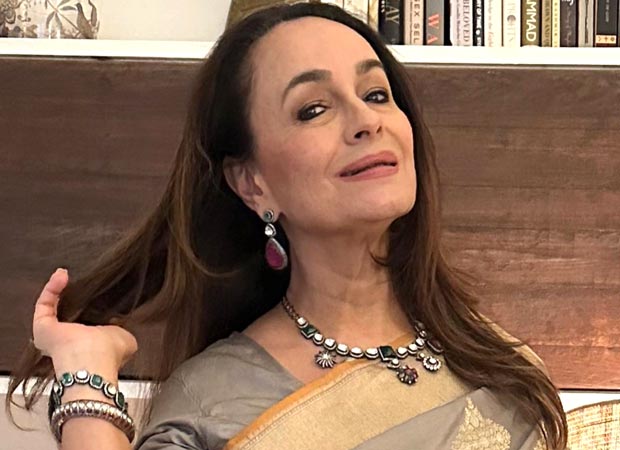Over 100 Civil Society Organisations (CSOs) from across the world have expressed mixed feelings over the outcomes of the just-concluded 10th Conference of States Parties to the UN Convention against Corruption (UNCAC CoSP10) in Atlanta, the United States of America.
They said the outcomes fell short of what they and some State Parties had set out to achieve and that geopolitical conflicts seemingly contributed to the watering down of many resolutions.
Notwithstanding, the CSOs said, “Steps taken for the defence of civic space is a welcome development.”
They also said advances on some key issues not addressed in the past, including whistleblower protection, gender, and public procurement, were finally addressed through stand-alone resolutions.
The Center for Fiscal Transparency and Integrity Watch (CeFTIW) from Nigeria and 115 CSOs that participated in the conference as observers from across the world reviewed the outcomes of the meeting in a statement on Friday.
COSP10, which took place from 11 to 15 December in Atlanta, gathered global leaders to make policy decisions and to continue work in charting the way forward for the international community in the prevention and fight against corruption.
Nearly 1,000 representatives from non-governmental organisations registered to attend, which is nearly three times the number from any previous COSP.
Nigeria’s matter and other positive developments
At the end of the meeting, a group of 116 CSOs said they welcome the adoption of a resolution tabled by Nigeria to enhance the use of beneficial ownership information to strengthen asset recovery, following tough negotiations.
“It builds on a previous resolution, adopted at CoSP 9, and includes several new elements, such as a call on States Parties to consider maintaining historical records and to ensure that beneficial ownership information is searchable by domestic authorities,”
“Unfortunately, it fails to adequately address the critical issue of access by foreign competent authorities and by civil society,” the statement read.
They acknowledged the conference organisers for hosting a record number of representatives from non-governmental organisations which served to foster constructive dialogue and collaboration between government and civil society delegates.
The CSOs said they recognise efforts by a number of States Parties to “advance UNCAC commitments by proposing resolutions including on the transparency of public procurement and political finance, beneficial ownership transparency, recognizing and promoting the role of civil society in anti-corruption efforts.”
They added that States Parties also took steps in addressing gendered aspects of corruption, strengthening whistleblower protection, the need to tackle environmental crime and corruption, and the links between organised crime and the need to develop synergies between the implementation of the UNTOC and the UNCAC.
Concerns and disappointments
However, the organisations said they are concerned that negotiations on the resolutions take place behind closed doors with observers not being able to attend – which is a practice in other UN fora – shielding States Parties from independent scrutiny on the positions they take.
The organisations further expressed their disappointment that some States Parties appear to have taken advantage of the consensus-based nature of negotiations to block progressive anti-corruption commitments, placing geopolitical interests above upholding the spirit of UNCAC.
“While States Parties were not always able to reach consensus on ambitious measures needed to advance the implementation of the Convention, some progress was achieved as States Parties agreed on a number of new collective commitments that goes beyond their previous pledges.”
They also call on States Parties to improve legal frameworks and practices to “protect and promote civic space, a safe and enabling environment for citizens, and active civil society participation at the local, national, regional, and global levels.”
“States need to step up efforts to protect and defend all those who report on and uncover corruption, including journalists, whistleblowers, human rights defenders, and anti-corruption activists, and release those who have been arbitrarily and unjustly detained for their anti-corruption work, such as Gubad Ibadoghlu.”
“States need to recognise the detrimental impact corruption has on the enjoyment of human rights, in particular those of individual and collective victims, that corruption fuels and exacerbates wars and conflicts, that it undermines society as a whole, and thus insist on the mutual obligations to respect, protect and fulfil human rights.
“State needs to promote the use of user-friendly electronic procurement systems that ensure full transparency and open data at all stages of the contracting cycle from their planning to their delivery, involving the private sector and civil society to monitor for corruption risks and improve the quality of public service delivery to citizens, as well as granting oversight authorities and civil society access to utilise procurement data,” the groups said.
Other recommendations
They advised governments to have clear provisions in law and practice to promote open tendering and fair criteria for awarding contracts and to prevent conflicts of interest.
“States need to promote and advance public access to information, in general, to enhance transparency and accountability of public services and governance by adopting comprehensive access to information laws that align with international standards, and ensure their effective implementation by, among other things, removing any barriers to filing requests, establishing or strengthening independent oversight bodies, and ensuring proactive publication of information relevant to anti-corruption efforts by public bodies.”
READ ALSO: 50 years of Germany in the United Nations, By Annalena Baerbock
“States need to emphasise the linkage between gender and corruption, adopt a human-rights-based and inclusive approach to anti-corruption abiding by other international conventions on the topic; recognize and combat gender-specific corruption by criminalising it and enhancing prevention measures; mainstream gender equality and inclusion into all relevant anti-corruption frameworks and efforts; and provide gender-disaggregated data on corruption and anti-corruption efforts.”
Finally, the CSOs urged State Parties to take swift action to advance the implementation of the resolutions adopted at CoSP10 at the national level and provide financial support to UNODC to support follow-up actions.
Support PREMIUM TIMES’ journalism of integrity and credibility
Good journalism costs a lot of money. Yet only good journalism can ensure the possibility of a good society, an accountable democracy, and a transparent government.
For continued free access to the best investigative journalism in the country we ask you to consider making a modest support to this noble endeavour.
By contributing to PREMIUM TIMES, you are helping to sustain a journalism of relevance and ensuring it remains free and available to all.
Donate
TEXT AD: Call Willie – +2348098788999











